Edouard de Castro
Favorites list: classic painters or paintings
Notes TOC
- Jan van Eyck (Netherlands, 1385-1440)
- Pieter Bruegel (the Elder) (Flanders, 1525- 1569)
- Giotto (Florence, 1267-1337)
- Raphael (Florence, 1483-1520)
- Sandro Botticelli (Florence, 1445-1510)
- La Vierge à L'Enfant (1450, France)
- Hieronymus Bosch (Netherlands, 1450-1516)
- Gabrielle d'Estrees and one of her Sister (1595?, Muse du Louvre, Paris)
- La grande odalisque (1814, Louvre, France)
- Adam and Eve (1507, Museo del Prado)
- The Great Wave Off Kanagawa (1823-1829?, Metropolitan Museum of Art, New York)
- The Annunciation (1432, Museo del Prado)
- Classic Asian Art
- Paolo Uccello (Florence, 1397-1475)
Early Netherlands school
Flemish painter who perfected the newly developed technique of oil painting.
Van Eyck's realism was creative in an almost hubristic way, for its object was to suggest God's perceptions in creating the universe: to see things from the standpoint of absolute knowledge which is uniquely God's possession.
To me: 15th century mystical hyperrealism!
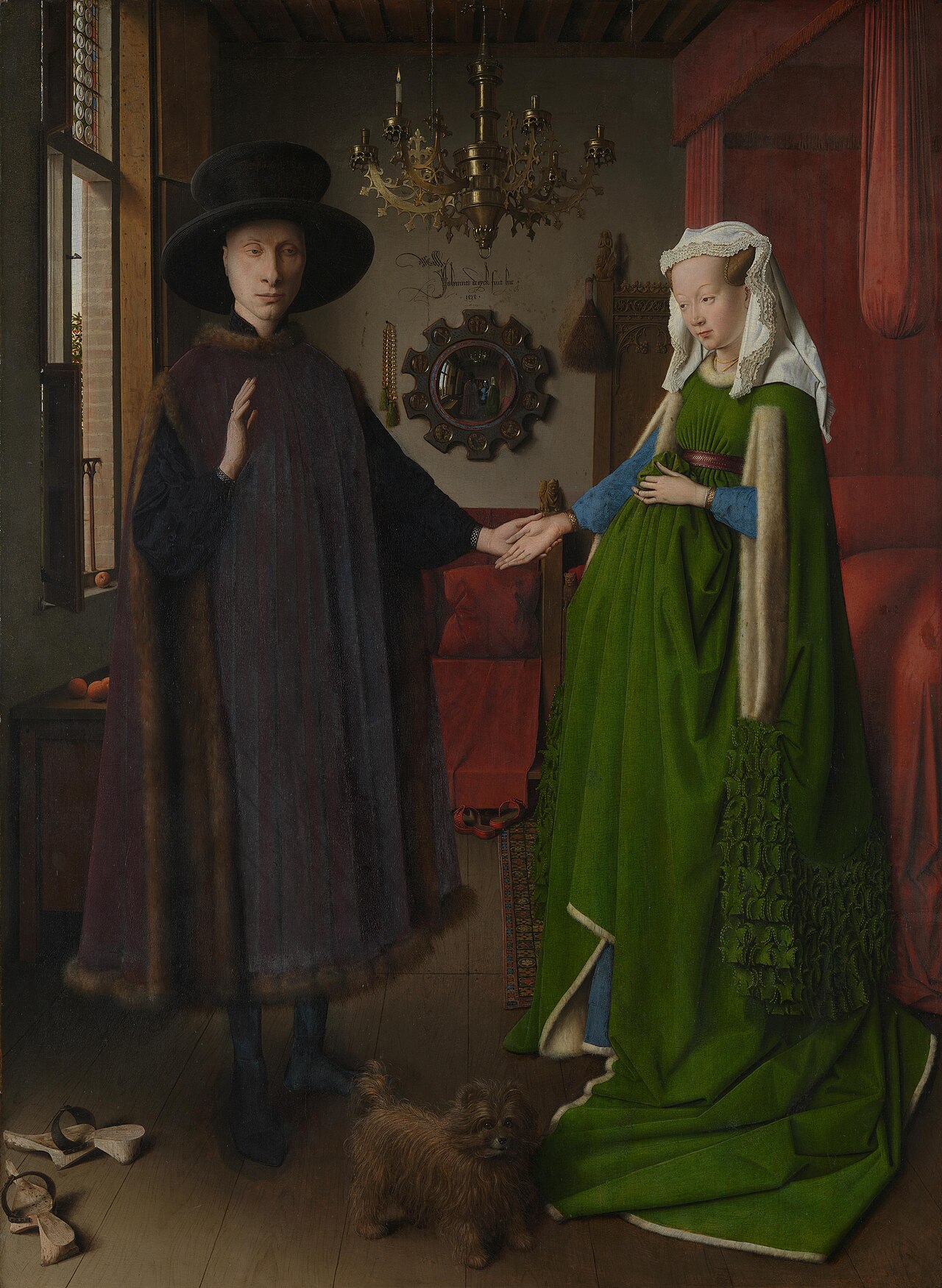
The Arnolfini Portrait (1434, National Gallery, London), from wikimedia.org
(note the 'primitive' linear perspective! and the mirror)
Flemish Northern Renaissance, genre paintings and landscapes.
He is often credited as being the first western painter to paint landscapes for their own sake, rather than as a backdrop to a religious allegory.
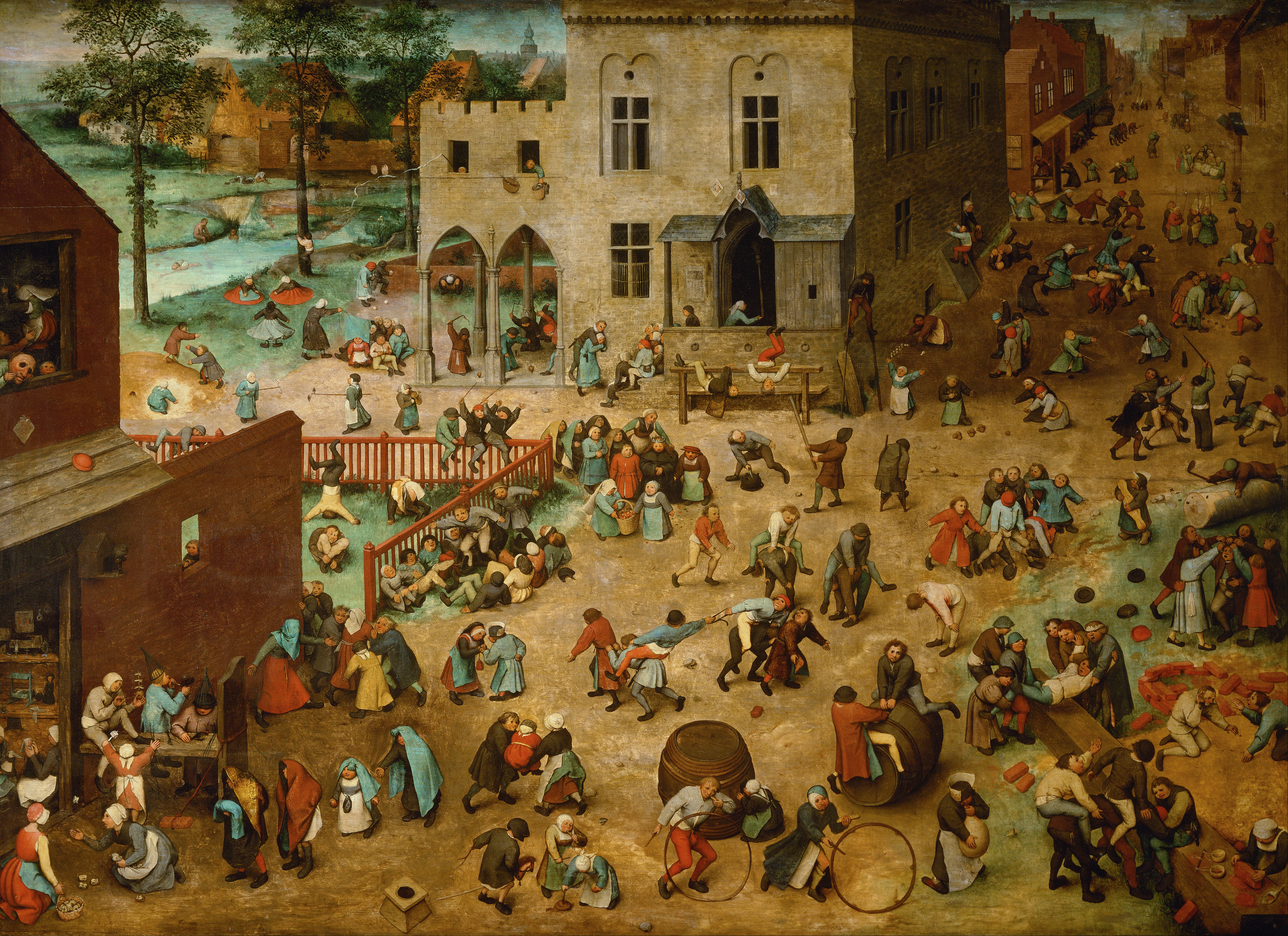
Children's Games (1560)
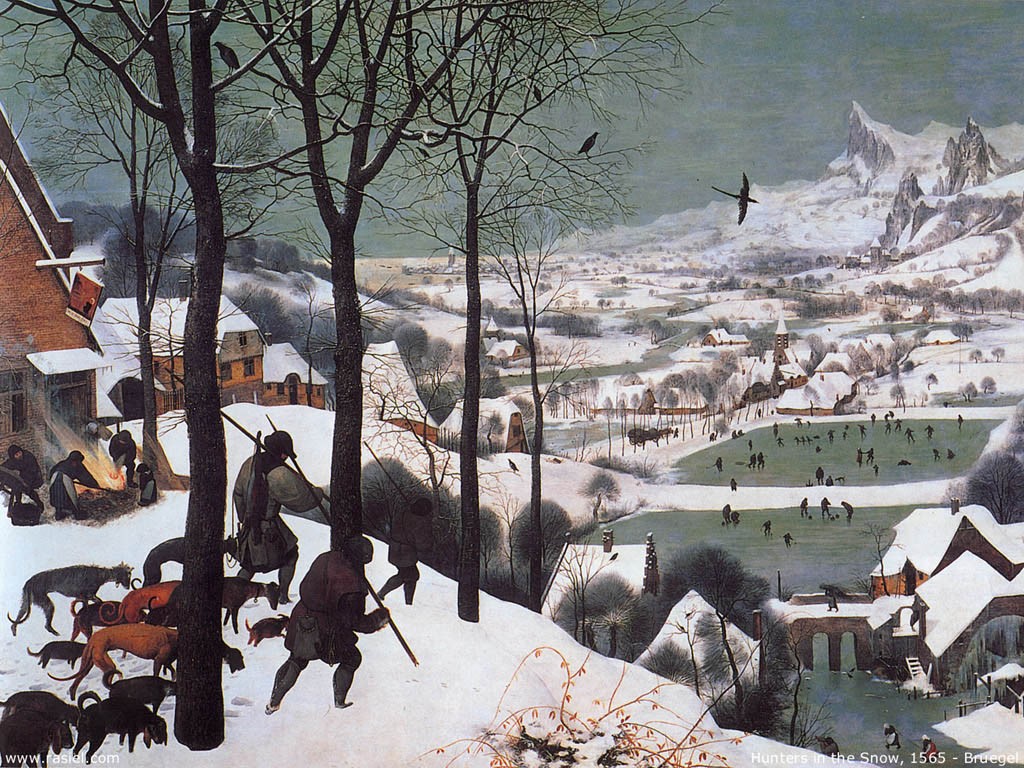
Hunters in the Snow (1565)

The Tower of Babel (1563) (via wga.hu)
Giotto is considered the "Father of the Renaissance". Characterized as a Proto-Renaissance painter, his work is a transition from the late medieval (Byzantine, Gothic). His innovations were the use of approximate perspective (~a first in occident!), increased volume of figures, and a depth of emotion which suggests human feeling instead of static and passive icons.
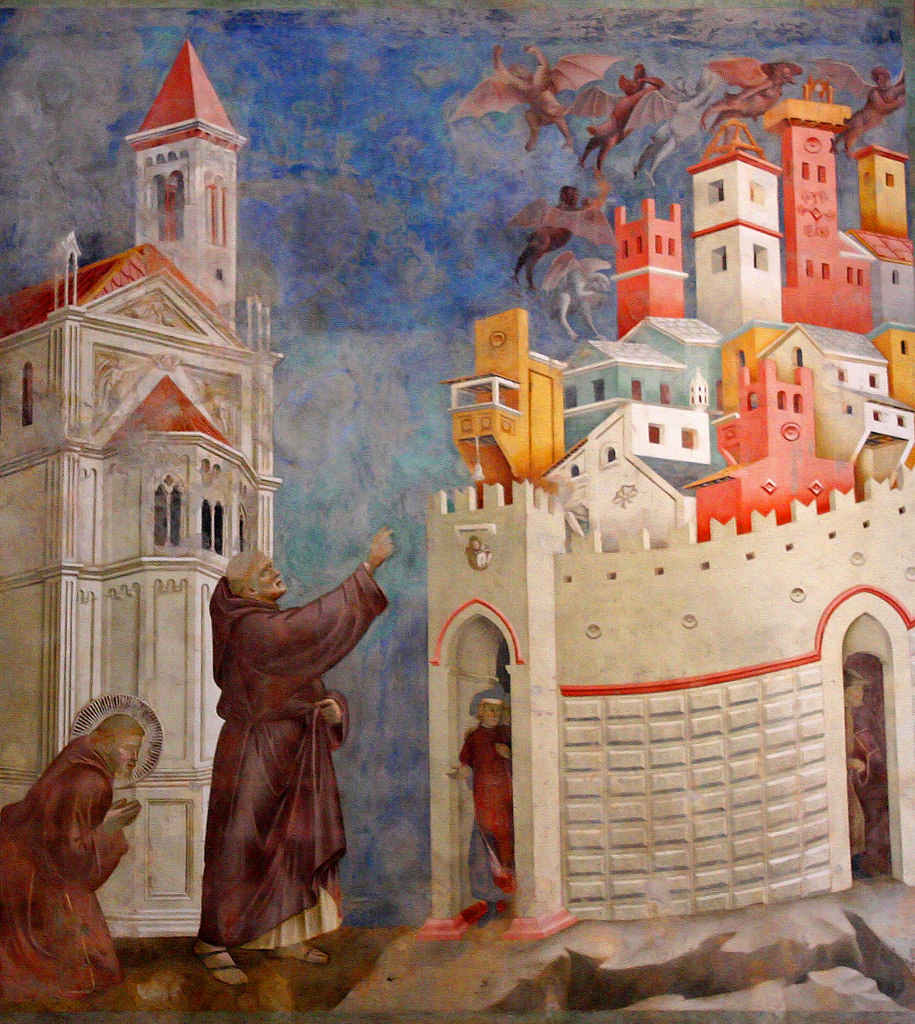
Exorcism of the demons at Arezzo (1297)
Note the (clumsy) perspective! The town looks like a 20th century painting!
Lamentation Over the Dead Christ (1305)
http://en.wikipedia.org/wiki/Giotto_di_Bondone
The Heritage of Giotto's Geometry: Art and Science on the Eve of Scientific Revolution
(Raffaello, Raffaello Sanzio, Raffaello Santi, Raffaello da Urbino or Rafael Sanzio da Urbino)
Florentine school in the Italian High Renaissance
For centuries Raphael has been considered the supreme High Renaissance painter, more versatile than Michelangelo and more prolific than their older contemporary Leonardo.
His work is admired for its clarity of form and ease of composition and for its visual achievement of the Neoplatonic ideal of human grandeur.
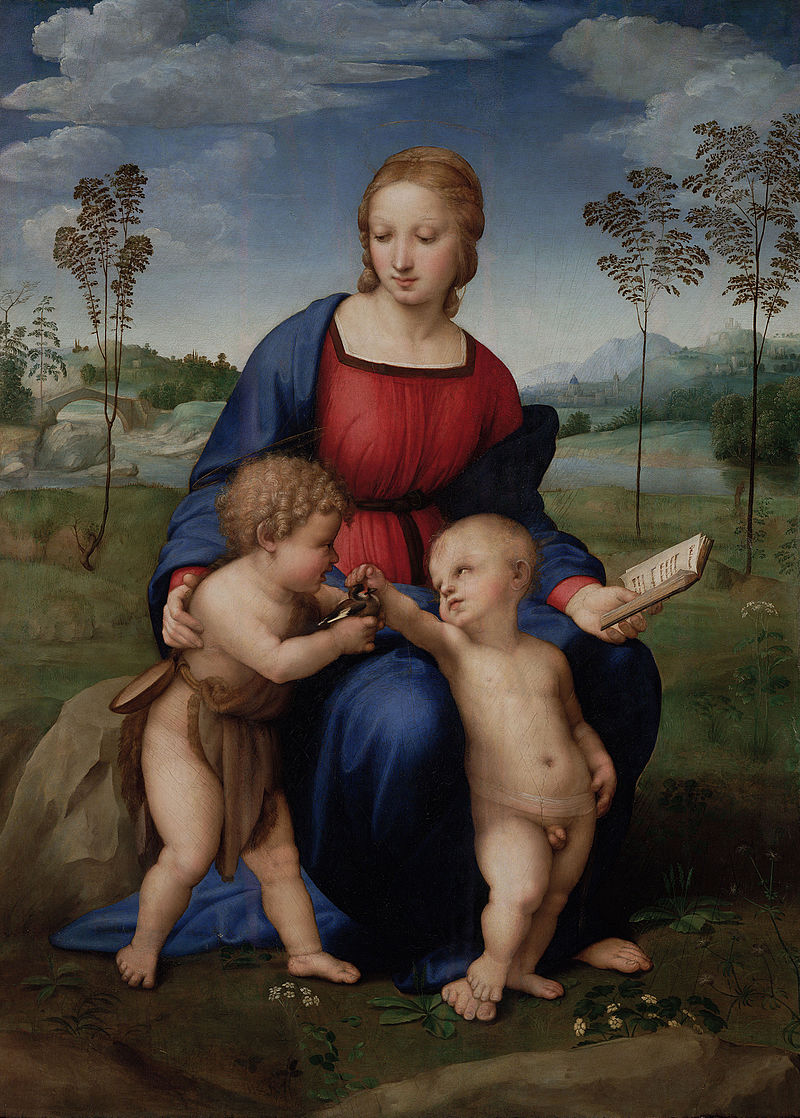
Madonna del Cardellino
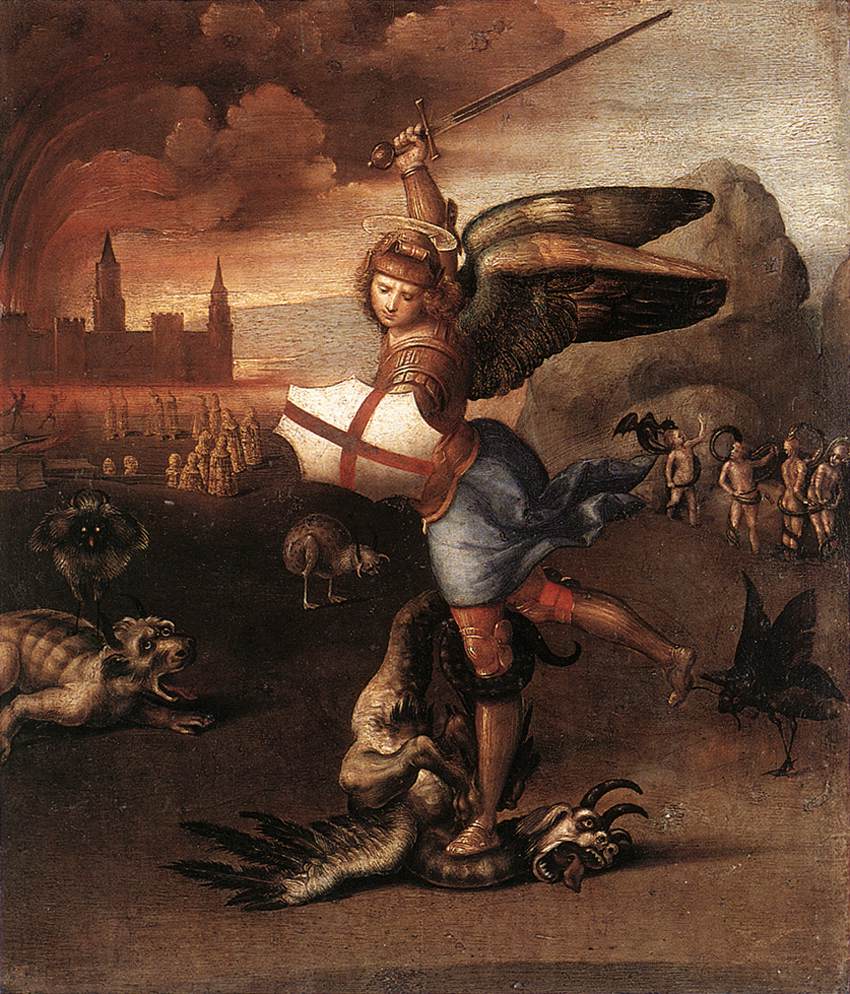
St Michael and the Dragon (1505, Louvre Museum, Paris)
Italian early Renaissance (Quattrocento)
Botticelli was extremely successful at the peak of his career, with a highly individual and graceful style founded on the rhythmic capabilities of outline. With the emergence of the High Renaissance style at the turn of the 16th century, he fell out of fashion, died in obscurity.
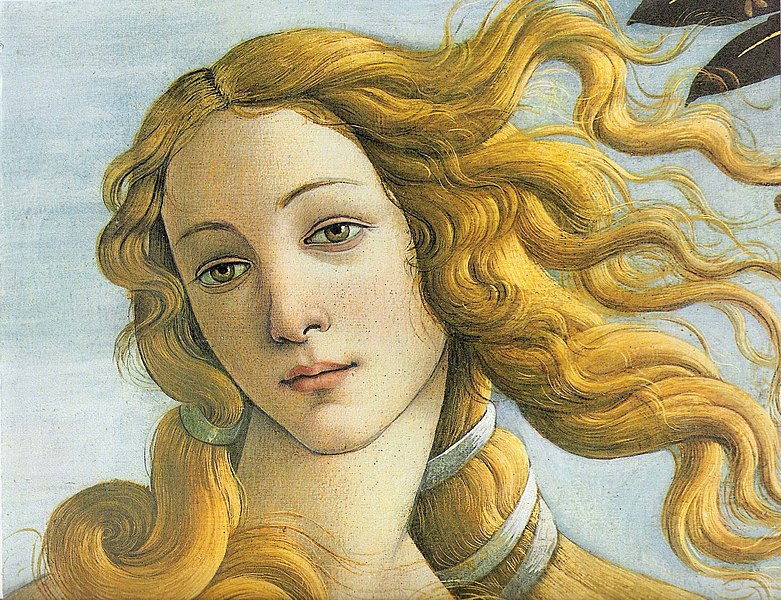
The Birth of Venus (detail, 1486)
http://en.wikipedia.org/wiki/The_Birth_of_Venus_%28Botticelli%29
(too famous but) so beautiful, sensual and modern!
by Jean Fouquet (France, 1420-1481)
A motif of Maria exposing her naked breasts to her infant son was frequently used before the Catholic Church turned 'unfunny' (after the council of Trent, 1563). Realistic images of women disguised as Mary with bare breasts are religious and erotic at the same time.
Beautiful Agnès Sorel was (likely) the model.
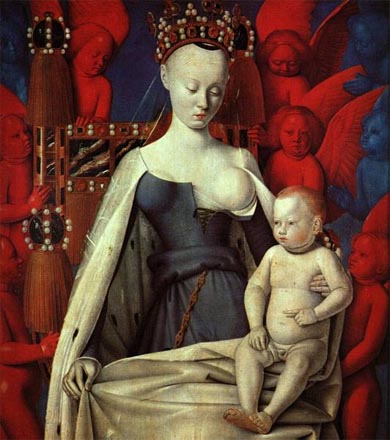
La vierge à l'enfant entourés d'anges (partie droite du diptyque de Melun)
(Jeroen Bosch, Jerome Bosch)
Bosch used images of demons, half-human animals and machines to evoke fear and confusion to portray the evil of man. The works contain complex, highly original, imaginative, and dense use of symbolic figures and iconography, some of which was obscure even in his own time. He is said to have been an inspiration to the surrealism movement in the 20th century.

The Garden of Earthly Delights (triptych 1504, Museo del Prado, Madrid) (image via ianrobinson.net)
Bosch moved away from postcard-perfect images by applying rough layers of paint in a style that came to be called impasto. He left the drawings under his paintings visible, and this gives his work a very modern feel. Bosch also ~invented genre painting in the occident: he was (one of) the first painter to actually paint secular stories.
http://en.wikipedia.org/wiki/Hieronymus_Bosch
http://www.bbc.co.uk/bbcfour/documentaries/features/bosch.shtml
Figurines based on Bosch paintings!
Interesting article about other renaissance oddities:
Story of Renaissance oddities - from Breast to Beard (dead link! cannot find the content anywhere else)
unknown painter!
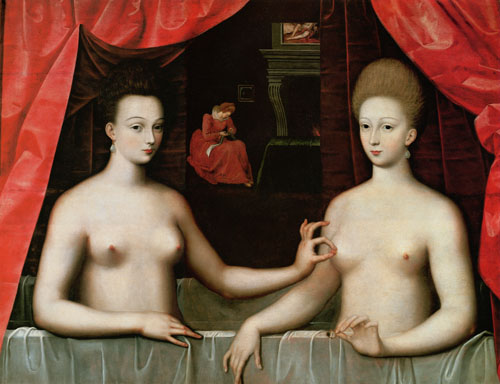
The subject of this painting is mysterious. It is assumed to be an allusion to the birth of César, son of Henry IV and her mistress, Gabrielle d'Estrées.
by Jean-Auguste-Dominique Ingres (France, 1780-1867)

nice back... may have five extra vertebrae!
by Albrecht Dürer (Germany, 1471–1528).

from Katsushika Hokusai (1760-1849, Japan)

By Fra Angelico (Italy, 1387-1455).
Quintessence of early renaissance religious art. I like the composition and the contrast between the organic background and the geometric shape (with weird perspective) of the building. Pure and enchanting.

(Tempera on panel, Museo del Prado, Madrid, Spain)
note:
aureole / halo history: Halos in Art: Horus to Jesus Christ to the X-Men
see http://www.eyeconart.net/history/Asian.htm
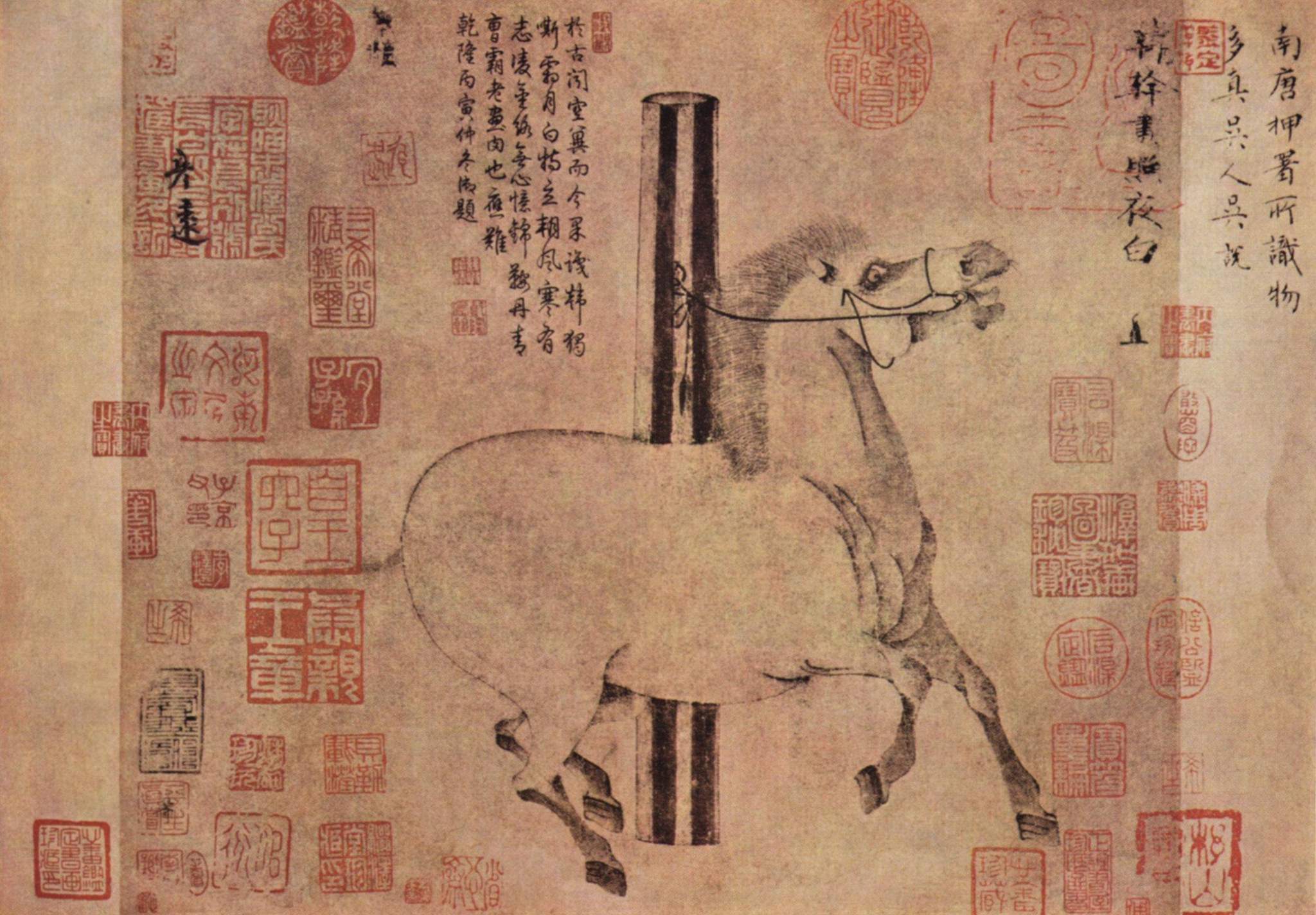
Han Gan; White Night Horse (780, China [T'ang Dynasty])

Kuniyoshi; Oniwaka Fighting Giant Carp (1830, Japan)
One of the most distinctive artists of the early Renaissance and a notable advocate of visual perspective in art.
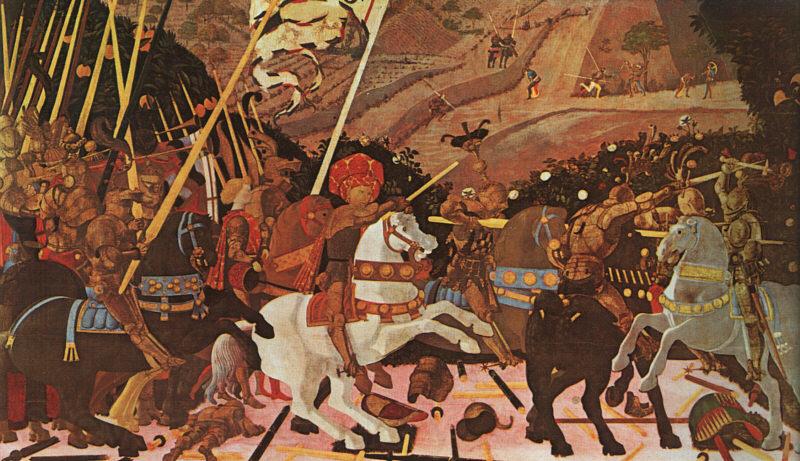
(Mauruzi da Tolentino at) the Battle of San Romano (1440, National Gallery, London)
Depicts a battle between Florence and Siena in 1432; da Tolentino was a mercenary, leader of the victorious Florentine 'forces'



